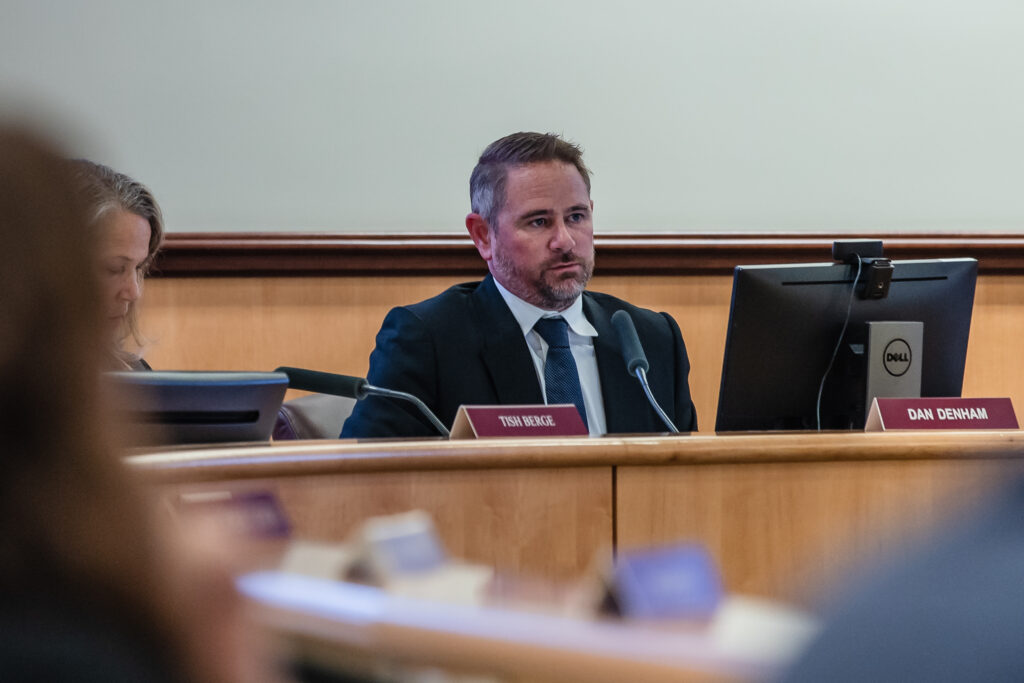This news analysis originally ran May 31 in the Politics Report, which comes out (almost) every Saturday and is exclusive to Voice of San Diego members.
The San Diego County Water Authority and Metropolitan Water District are set to announce a historic settlement of decades of legal disputes following the 2003 deal to purchase water from Imperial Valley farmers.
The disputes are insanely complex and they have cost San Diego ratepayers an estimated $20 million in legal fees. But they basically boil down how much Metropolitan charges San Diego to transfer water San Diego purchased from the Imperial Irrigation District, or IID. The Water Authority agreed to purchase water for several decades from IID. It also invested heavily in lining the canals that bring water from the Colorado River, saving significant amounts of water that had been lost to seepage.
Much of the saved water is San Diego’s for many decades as well. But Metropolitan brings the water to San Diego and its fluctuating costs to do that led to many years of legal battles.
Daniel Denham, the general manager of the Water Authority said the deal will:
Set a rate for the transfer of the water, eliminating uncertainty.
Make it easier to renew the transfer agreements.
Protect the flexibility of the water authority to adjust its needs.
But the most interesting part: The deal will help the Water Authority start selling the abundance of water to which it has access because of its massive investments in the water transfers from Imperial Valley and the Carlsbad desalination plant. The settlement will set a framework for the Water Authority to sell water to other Southern California water agencies or to Metropolitan itself. And Metropolitan has agreed to even allow the Water Authority to sell water out of state, if it’s not needed here.
Denham said the Water Authority will now become a normal member of Metropolitan Water District because the deal also ensures that the rates it pays Metropolitan to move the water it has purchased will not go up to accommodate big investments Metropolitan leaders want to make. So the Water Authority can either support those projects or oppose them on their merits without worrying about the transfer fees being affected.
“We’ve just stabilized supply and transportation for 50 percent of San Diego’s water supply. Before, we were obstinate instead of looking at the big picture,” he said.
In a memo to Metropolitan’s Board of Directors, Marcia Scully, Met’s general counsel, wrote that the deal will allow San Diego to be flexible in how much water it receives according to demand. And then she alluded to what Denham seemed most excited about: the chance to sell water.
“Significantly, SDCWA will have new flexibility in the timing and amount of exchange water deliveries, and a new ability to provide water to other Metropolitan member agencies or to Metropolitan,” she wrote.
That new ability couldn’t come at a better time for Denham. Recently, San Diego City Councilmember Sean Elo-Rivera harshly criticized the Water Authority for not more urgently trying to sell the water it has spent so much money accessing. Ratepayers have been staring at rising bills that could go another 60 percent higher as the costs of those big investments in buying water from farmers and the desalination plant add up.
“In a dry year, like recently when parts of LA were on water restrictions of one-day per week, we can sell water and Metropolitan can provide it to their service area. If Met doesn’t need the water, this is the starting point for a transaction with areas farther away,” he said.
A press conference and ceremony is scheduled for Monday morning. They don’t need boards to approve it because the settlement is within the parameters of what the boards had set for a deal.


